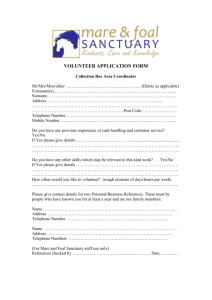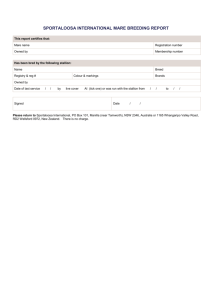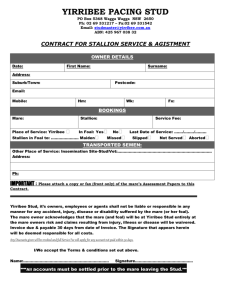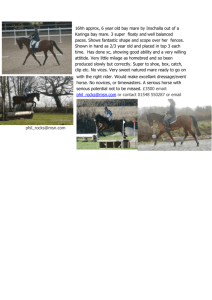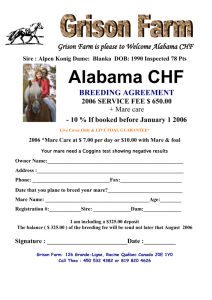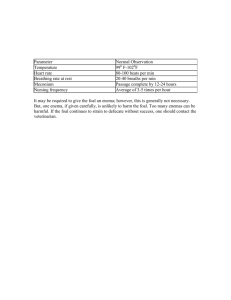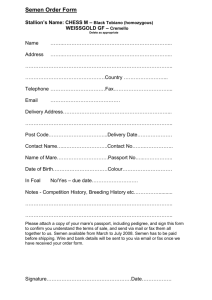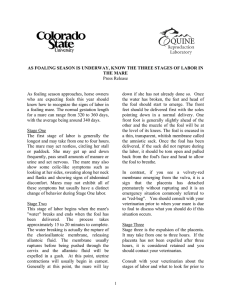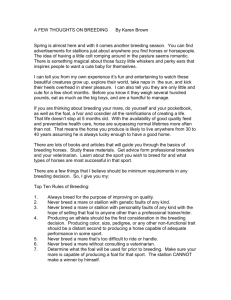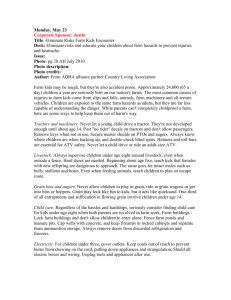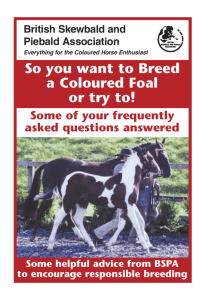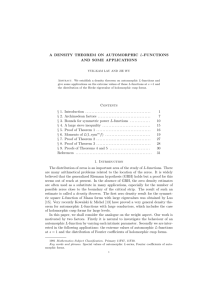Vet October - The Horse Gazette
advertisement
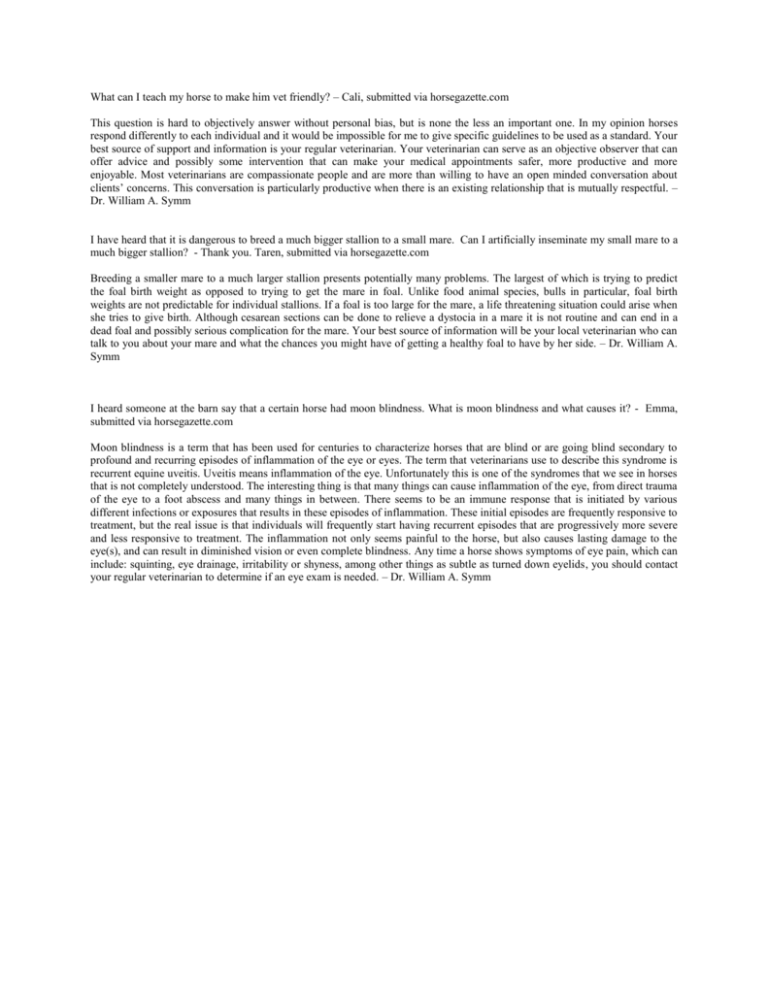
What can I teach my horse to make him vet friendly? – Cali, submitted via horsegazette.com This question is hard to objectively answer without personal bias, but is none the less an important one. In my opinion horses respond differently to each individual and it would be impossible for me to give specific guidelines to be used as a standard. Your best source of support and information is your regular veterinarian. Your veterinarian can serve as an objective observer that can offer advice and possibly some intervention that can make your medical appointments safer, more productive and more enjoyable. Most veterinarians are compassionate people and are more than willing to have an open minded conversation about clients’ concerns. This conversation is particularly productive when there is an existing relationship that is mutually respectful. – Dr. William A. Symm I have heard that it is dangerous to breed a much bigger stallion to a small mare. Can I artificially inseminate my small mare to a much bigger stallion? - Thank you. Taren, submitted via horsegazette.com Breeding a smaller mare to a much larger stallion presents potentially many problems. The largest of which is trying to predict the foal birth weight as opposed to trying to get the mare in foal. Unlike food animal species, bulls in particular, foal birth weights are not predictable for individual stallions. If a foal is too large for the mare, a life threatening situation could arise when she tries to give birth. Although cesarean sections can be done to relieve a dystocia in a mare it is not routine and can end in a dead foal and possibly serious complication for the mare. Your best source of information will be your local veterinarian who can talk to you about your mare and what the chances you might have of getting a healthy foal to have by her side. – Dr. William A. Symm I heard someone at the barn say that a certain horse had moon blindness. What is moon blindness and what causes it? - Emma, submitted via horsegazette.com Moon blindness is a term that has been used for centuries to characterize horses that are blind or are going blind secondary to profound and recurring episodes of inflammation of the eye or eyes. The term that veterinarians use to describe this syndrome is recurrent equine uveitis. Uveitis means inflammation of the eye. Unfortunately this is one of the syndromes that we see in horses that is not completely understood. The interesting thing is that many things can cause inflammation of the eye, from direct trauma of the eye to a foot abscess and many things in between. There seems to be an immune response that is initiated by various different infections or exposures that results in these episodes of inflammation. These initial episodes are frequently responsive to treatment, but the real issue is that individuals will frequently start having recurrent episodes that are progressively more severe and less responsive to treatment. The inflammation not only seems painful to the horse, but also causes lasting damage to the eye(s), and can result in diminished vision or even complete blindness. Any time a horse shows symptoms of eye pain, which can include: squinting, eye drainage, irritability or shyness, among other things as subtle as turned down eyelids, you should contact your regular veterinarian to determine if an eye exam is needed. – Dr. William A. Symm
